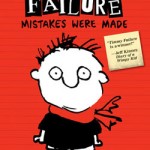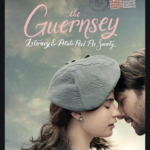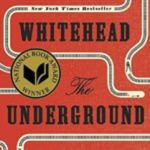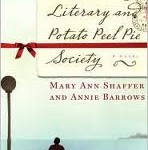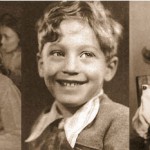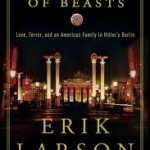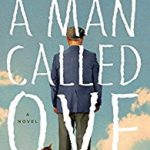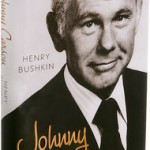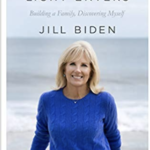September 10th, 2019 — 10:07pm
Hacking Darwin by Jamie Metzl
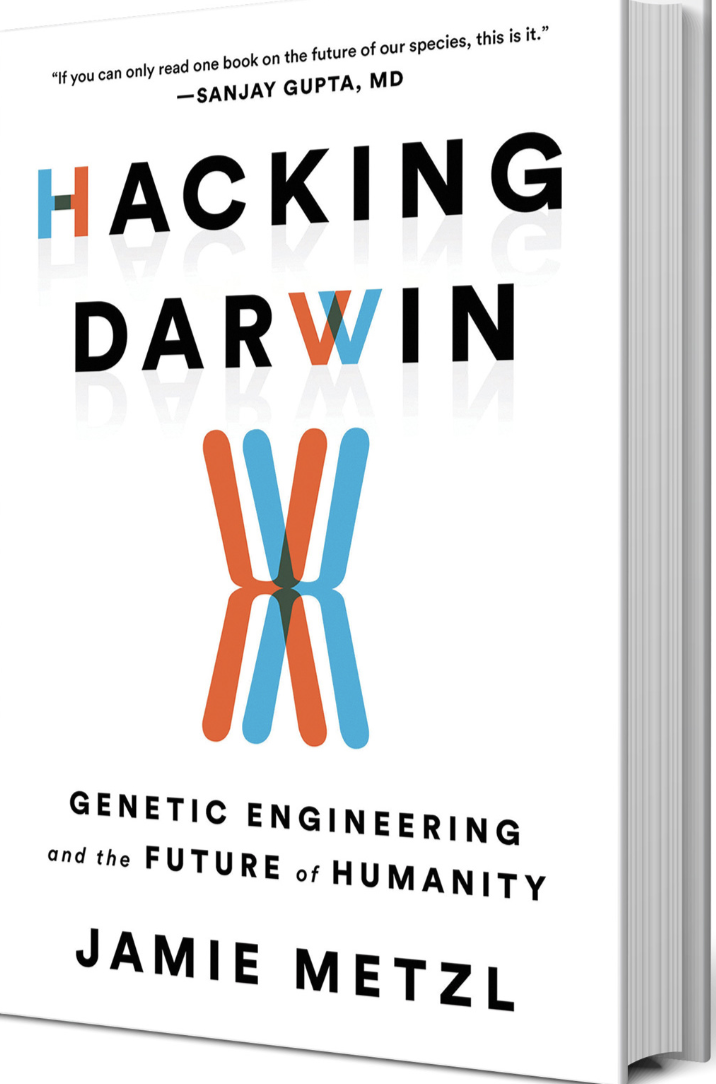 What if during the stage of life that you will be planning a family, your doctor told you that it could be arranged so that your future child would have the best of yours and your partner’s genetic makeup? Isn’t that what everybody hopes for? Suppose it could also be arranged that your future child would not get cancer, diabetes and other serious illnesses and would lead a long and healthy life. In addition, you could choose for your offspring to have a very high IQ and great athletic ability? While you are at it, you could also choose to have this precious child have an outgoing, empathic personality.
What if during the stage of life that you will be planning a family, your doctor told you that it could be arranged so that your future child would have the best of yours and your partner’s genetic makeup? Isn’t that what everybody hopes for? Suppose it could also be arranged that your future child would not get cancer, diabetes and other serious illnesses and would lead a long and healthy life. In addition, you could choose for your offspring to have a very high IQ and great athletic ability? While you are at it, you could also choose to have this precious child have an outgoing, empathic personality.
The summer between college and medical school, I had a fellowship to work at the Jackson Memorial Laboratory in Bar Harbor, Maine. One of the projects that I worked on was to study the behavior differences between mice that differed from each other by one gene. Little did I realize that I was a small part of major scientific advances that were developing which are now on the verge of offering all of the above choices and much more.
This book explains what is happening in an exploding revolution in our understanding of the ability to manipulate human genetics. Initially, I felt the book was going to be too technical as even with my medical background, I had some trouble following the scientific descriptions of the splitting of the human genome. However, just as I was about to lose him, the author dialed back with a practical explanation and descriptions. He also was able to inject his sense of humor into the overwhelming implications of what he is talking about.
The result is an absolutely fascinating book that will completely change your view of Olympic athletes as well as the choices that you and your children may have to make when planning a family. I am sorry to say that reading this book make keep you awake at night contemplating the serious ethical and moral dilemmas that our society will now have to face. Thoughtfully, the author even offers some suggestions how we can grapple with those issues.
By the way, because of the background of the author Jamie Metzl, I can’t help wondering if he himself were genetically modified. He graduated Phi Beta Kappa from Brown University, held a PhD from Oxford and a law degree from Harvard Law School. In addition, he is an avid Ironman triathlete and an ultramarathoner.
Please leave any comments about this review or the book below
You may order a copy of this book from Amazon by clicking here
Comment » | M - Medical, Science, Social
May 16th, 2014 — 11:19pm
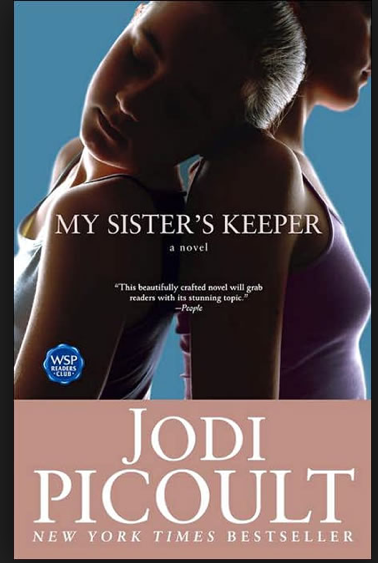
My Sister’s Keeper by Jodi Picoult – This was the second Jodi Picolt novel which I had the pleasure of reading. The first was The Storyteller, which was about the granddaughter of a holocaust survivor who finds herself friends with a former Nazi Concentration Camp guard who killed many prisoners in the same camp where her grandmother was imprisoned. The elderly ill Nazi asks the grown granddaughter to hasten his death. Picoult obviously has the ability to extract the ethical issues which can go to the heart and soul of our humanity. In My Sister’s Keeper a child develops a potentially fatal disease, which is unresponsive to various treatments. Blood transfusions, bone marrow transplant and ultimately a kidney transplant would be necessary to keep her alive. Things look bad for survival, as treatment options appear to be running out. The parents and brother don’t have the right “match” to be useful and a search for the right donor seems futile. However, it is possible for anther sibling, not yet conceived, to be the right match especially if there are genetic manipulation performed which would choose the right embryo – a type of carefully selected artificial insemination using the biological parents. It works out great and the parents see the stem cells from the umbilical cord of the newly born child, which would normally be thrown away being transferred to their ill daughter. On subsequent occasions when there is a relapse, there can be blood transfusions from the younger sister. Even a bone marrow transplant would be life saving.
The majority of the book takes place after Anna the younger sister now 13, has decided to visit an attorney, Campbell Chance and request that she be allowed to make her own decisions on what part of her body is given to her sister. In other words, she wants to be medically emancipated. The author gets into the head of each character as each chapter is written in the voice of one the important players in this real life drama. Katie is the older sister who has been sick most of her life and yet feels close to younger sister who is now resisting giving her what she needs to live. Jesse is the brother who in response to the emotional turmoil in the family becomes a juvenile delighquent and somewhat of a pyromaniac. Brian is the father who happens to be a brave fireman and a caring, loving father to all three of his children. Sara is the mother who clearly would do anything to save her daughter. She happens to be an attorney and it seemed natural to her that when there was going to be a trial to determine if the younger daughter is to be free to make her own decision, she will defend the parent’s point of view that they can make the decisions for Anna. Campbell is the attorney who Anna has chosen to represent her. It turns out that his personal story informs us of another aspect of the dilemma as do the the feelings and experience of Julie, the woman who is chosen by the court to be the guardian ad litem for Anna By providing us with riveting insight into each of these people, the reader is swept up as if we are living through this painful scenario.
Life of course is filled with potential heartaches, which we all must experience, but to varying degrees and at different times Even though we know about the disappointments of life, illness and death that may be around the corner, rarely are there things that we have never heard about. The situation of expecting one child to dedicate and perhaps risk her life to possibly save the life and maintain the well being of a sibling is quite unique. While not exactly the same, it reminds me of Sophie’s Choice. Should the author give us a happy ending or any ending in fact, is an interesting question. Ms. Picoult certainly did not shy away by leaving the ending to our imagination, which a lesser author may have done. We are challenged to think through the horns of this ethical dilemma. We make choices in our mind but we are able to see the where they are going in this story and perhaps in the future with modern technology.
Comment » | FG - Fiction General, FL - Fiction Legal, M - Medical
December 1st, 2013 — 1:13am
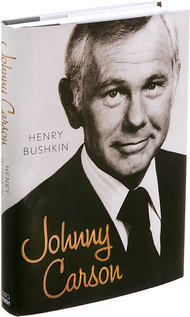 Johnny Carson by Henry Bushkin Imagine that you have a good friend with whom you visit on a regular basis for more than 15 years . He died several years ago and you learn that someone who knew him very well has just written a book about him. You probably would be very drawn to want to read that book as was I when this book came out about Johnny Carson. I would periodically watch the Tonite Show, which he hosted for thirty years between 1962 and 1992. The book was written by Henry Bushkin, who Carson once described as his best friend. Bushkin met Carson in 1970 when he was interviewed by him and hired as his personal attorney when Bushkin was just a few years out of law school. As I got into the book I developed the uncomfortable feeling that not only was the author not being a very loyal friend by revealing Carson’s personal life and depicting him as mostly not a very nice guy, but that he also was breaching his code of ethics as a lawyer by discussing things that were told to him in his role as Carson’s attorney. (I understand that lawyers may debate the issue of whether such lawyer client privilege exists after death.) For example very early in his tenure as Carson’s lawyer he accompanied him and a small raiding party that broke into Carson’s second wife’s apartment in which she was living while they were separated. She wasn’t there at the time and the purpose of the break-in was to discover evidence that she was having an affair which they did find. Bushkin was ready to answer the police if they were caught by claiming that it was Johnny’s apartment since he was providing all his wife’s financial support at that time. There was a time during Carson’s run with NBC when his contract was due to run out and he was being courted by ABC. All the behind the scenes secret details how Bushkin and Carson led ABC on to think that they might go with them while using the inducements being offered to them by ABC to extract more from NBC were revealed. Johnny’s marital infidelities were also freely discussed with a hint that Bushkin was also cheating on his own wife. In fact, Bushkin’s explanation for his own wife leaving him was because she couldn’t tolerate his putting Carson over her as he would be frequently away in the evening as well as out of town whenever Carson traveled and needed him. Perhaps the most remarkable aspect of this book was the depiction of Johnny Carson’s character as a superficial man who had very little capacity to care about other people. He was shown to have no meaningful relationship with his sons when they were children or adults. When Joan Rivers, who he invited to be a substitute host for him on his show many times, accepted a deal to have her own show on another network opposite his show, he never spoke with her again. His need to be praised and adored by others, as well as his questionable honesty, was illustrated by how he played tennis. Bushkin who apparently was an excellent tennis player was expected to play tennis with Carson, who loved the game, Bushkin noted that Carson would frequently call line shots in his favor even when they were not and would accept (and apparently expect) Bushkin calling them in Carson’s favor even when they were not. Bushkin attributed Carson’s inability to have genuine caring relationships to be related to his mother Ruth who was described as a nasty person. It was clear that Bushkin became a very wealthy man himself as result of his association with Carson and participation in some of the business deals that he helped set up for his boss. Carson eventually fired Bushkin in 1988 because he felt that he was not being totally loyal to him and did not put Carson’s interest above his own. Therefore it should be of little surprise as with this book Carson’s “good friend” and attorney appears to care little about preserving his legacy and reputation as the warm likeable guy that so many people spent so many evenings with as they enjoyed The Tonite Show. The end product which he produced is really quite superficial and probably doesn’t “tell all” but certainly “belittles much” about Johnny . Don’t reward the author as I did by purchasing this book. If you must read it, take it out from the library.
Johnny Carson by Henry Bushkin Imagine that you have a good friend with whom you visit on a regular basis for more than 15 years . He died several years ago and you learn that someone who knew him very well has just written a book about him. You probably would be very drawn to want to read that book as was I when this book came out about Johnny Carson. I would periodically watch the Tonite Show, which he hosted for thirty years between 1962 and 1992. The book was written by Henry Bushkin, who Carson once described as his best friend. Bushkin met Carson in 1970 when he was interviewed by him and hired as his personal attorney when Bushkin was just a few years out of law school. As I got into the book I developed the uncomfortable feeling that not only was the author not being a very loyal friend by revealing Carson’s personal life and depicting him as mostly not a very nice guy, but that he also was breaching his code of ethics as a lawyer by discussing things that were told to him in his role as Carson’s attorney. (I understand that lawyers may debate the issue of whether such lawyer client privilege exists after death.) For example very early in his tenure as Carson’s lawyer he accompanied him and a small raiding party that broke into Carson’s second wife’s apartment in which she was living while they were separated. She wasn’t there at the time and the purpose of the break-in was to discover evidence that she was having an affair which they did find. Bushkin was ready to answer the police if they were caught by claiming that it was Johnny’s apartment since he was providing all his wife’s financial support at that time. There was a time during Carson’s run with NBC when his contract was due to run out and he was being courted by ABC. All the behind the scenes secret details how Bushkin and Carson led ABC on to think that they might go with them while using the inducements being offered to them by ABC to extract more from NBC were revealed. Johnny’s marital infidelities were also freely discussed with a hint that Bushkin was also cheating on his own wife. In fact, Bushkin’s explanation for his own wife leaving him was because she couldn’t tolerate his putting Carson over her as he would be frequently away in the evening as well as out of town whenever Carson traveled and needed him. Perhaps the most remarkable aspect of this book was the depiction of Johnny Carson’s character as a superficial man who had very little capacity to care about other people. He was shown to have no meaningful relationship with his sons when they were children or adults. When Joan Rivers, who he invited to be a substitute host for him on his show many times, accepted a deal to have her own show on another network opposite his show, he never spoke with her again. His need to be praised and adored by others, as well as his questionable honesty, was illustrated by how he played tennis. Bushkin who apparently was an excellent tennis player was expected to play tennis with Carson, who loved the game, Bushkin noted that Carson would frequently call line shots in his favor even when they were not and would accept (and apparently expect) Bushkin calling them in Carson’s favor even when they were not. Bushkin attributed Carson’s inability to have genuine caring relationships to be related to his mother Ruth who was described as a nasty person. It was clear that Bushkin became a very wealthy man himself as result of his association with Carson and participation in some of the business deals that he helped set up for his boss. Carson eventually fired Bushkin in 1988 because he felt that he was not being totally loyal to him and did not put Carson’s interest above his own. Therefore it should be of little surprise as with this book Carson’s “good friend” and attorney appears to care little about preserving his legacy and reputation as the warm likeable guy that so many people spent so many evenings with as they enjoyed The Tonite Show. The end product which he produced is really quite superficial and probably doesn’t “tell all” but certainly “belittles much” about Johnny . Don’t reward the author as I did by purchasing this book. If you must read it, take it out from the library.
Comment » | B - Biography
October 10th, 2013 — 11:59pm
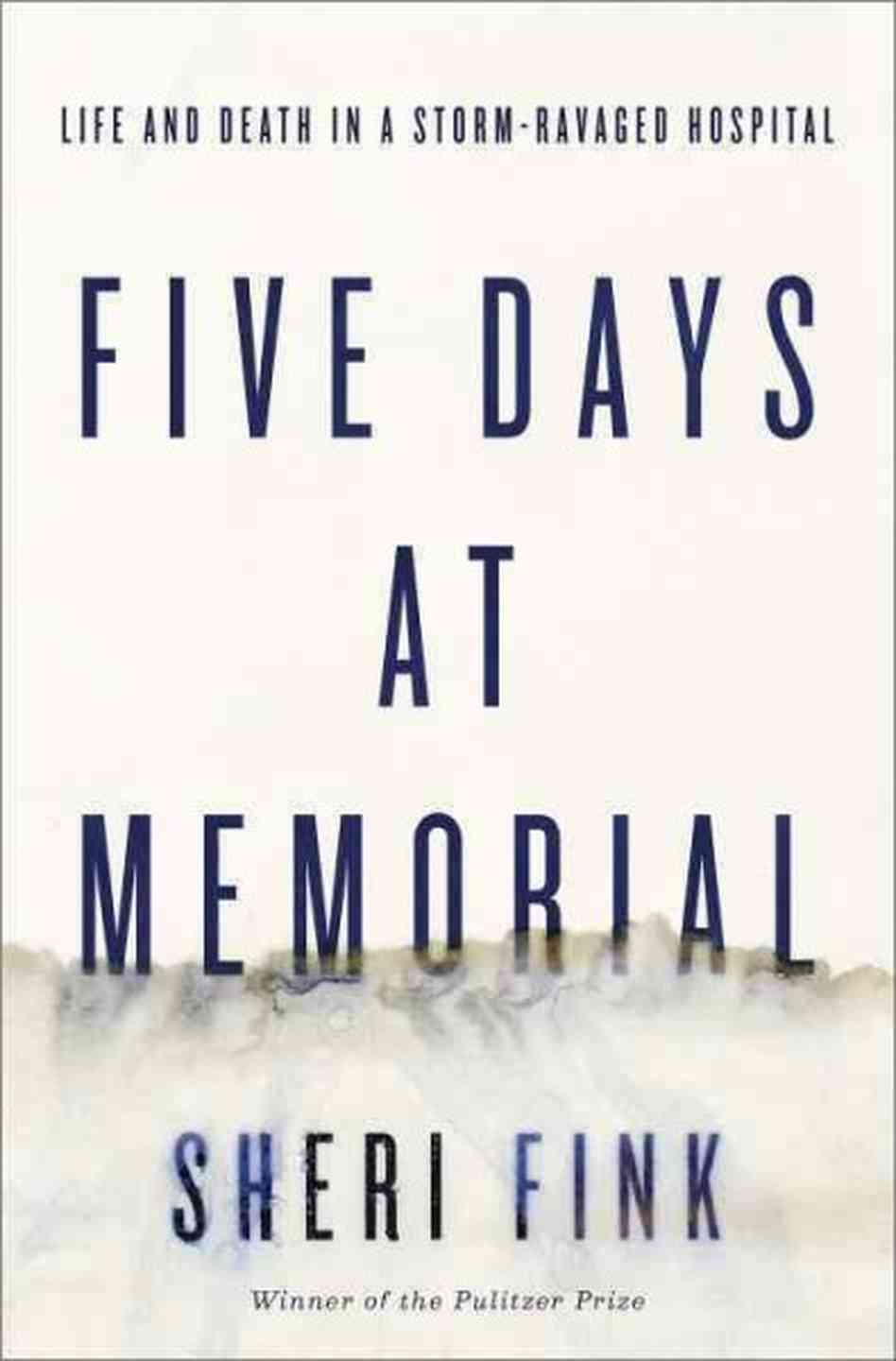 5 Days at Memorial: Life and Death in a Storm Ravaged Hospital by Sheri Fink – This is a great book for anyone who works in a hospital especially doctors and nurses who realize they could be on call when a disaster might strike. Also include yourself in this group if you are a hospital administrator or someone who likes to wrestle with ethical dilemmas. Be prepared for a lot of repetition, medical details that may all seem to be almost the same to most people as well as for some dips into the history of this hospital, other disasters and a course in ethics over the years even dating back to ancient times. If you can handle all of this, you really have an exciting, intellectually stimulating book with a look at disaster medicine, making medical and ethical decisions under difficult circumstances and some good legal battles. The main event was the 2005 Hurricane Katrina, which was the costliest natural disaster, as well as one of the five deadliest hurricanes in the history of the United States. At least 1,833 people died in the hurricane and subsequent floods. This book deals with the impact of the storm on Memorial Hospital in New Orleans, which was a 312-bed hospital, which included patients receiving intensive care and a larger section of the hospital where critically ill patients were treated. As the floodwater rose, most of the power in the hospital was irretrievably lost. There was no sanitation, and they were running out of food. Indoor temperatures were as high as 110 F degrees. At one point there were over 2000 people in the hospital as the numbers swelled with families of patients and staff as well as refugees from the surrounding city. The hospital became surrounded by water and there was no way to leave by car. A makeshift helipad was established on the roof but to get there patients, had to be carried up several flights of stairs usually in the dark and passed through a hole in the wall to get to another part of the hospital complex and up additional stairs. There was limited oxygen for these patients and for some the nurses had to squeeze a balloon like device to get the air into their lungs and drip an IV into their veins while going up the stairs. It was difficult getting enough helicopters to remove all the people from the hospital. Decisions had to be made which patients to evacuate first. Should it be the ones that were barely alive and wouldn’t be expected to even survive the trip to another location or perhaps already had a fatal illness where their demise was expected in a few days or should the patients go first who had a better long term outlook but still required hospital care?? Should the preference or order of care be influenced if the patient had a DNR order, meaning do not resuscitate the patient if their heart stops or if they stop breathing. As the first three or four days passed most of the people were evacuated (where they were evacuated to was another problem). There was confusion and questions about the actions by the corporation that owned the hospital and what arrangements they were making to help the stranded hospital’s need for evacuation. Outside the hospital gunshots were heard and there were concerns that looters might enter the hospital by boat. There was a concern about the physical integrity of the old hospital walls. You would think that the National Guard and the US Government should have done a heroic operation to save everyone from the beginning. They apparently were saving people from rooftops of their homes, helping out in the Superdome, which was the place of last resort for the people of New Orleans who weren’t able to escape before the flood, as well as sporadically appearing on the helicopter pad. In the end there were a small number of doctors and nurses trying to care for the remaining and sickest patients. There was concern that even moving some of them would be fatal. One man was so obese that they couldn’t figure out how to move him. Some patients were clearly in the last hours hours of their lives. Others would soon be that way if they didn’t get more intensive care. One of the remaining doctors along with two nurses was Dr. Anna Pous, a very compassionate and brilliant ENT surgeon who had a history of reconstructing patients with advanced cancer. She found herself faced with the task of trying to relieve the suffering of several remaining patients. It is well known to physicians and nurses who treat dying patients, that morphine often in combination with a rapid acting tranquillizer such as Versed, given intravenous will relieve the pain and agonizing difficulty breathing in the final stages of life. It is also known that this treatment could hasten their demise. Dr. Pous appeared to have made the decision to have several patients receive large doses of morphine and Versed, which would painlessly end their lives. At a later point in time , this action was felt by some people to be murder. In fact, Dr. Pous was actually arrested, handcuffed and was with two nurses charged with second-degree murder. The response of the medical community from this hospital and from across the country, the legal and emotional reactions of some of the patient’s families, the media hype and the ethical questions which were being asked, were an important part of this book. The book provides few answers and lots of stimulating questions. The author won a Pulitzer Prize for her reporting on this subject in the New York Times Magazine. If you are drawn to this subject you will not be disappointed.
5 Days at Memorial: Life and Death in a Storm Ravaged Hospital by Sheri Fink – This is a great book for anyone who works in a hospital especially doctors and nurses who realize they could be on call when a disaster might strike. Also include yourself in this group if you are a hospital administrator or someone who likes to wrestle with ethical dilemmas. Be prepared for a lot of repetition, medical details that may all seem to be almost the same to most people as well as for some dips into the history of this hospital, other disasters and a course in ethics over the years even dating back to ancient times. If you can handle all of this, you really have an exciting, intellectually stimulating book with a look at disaster medicine, making medical and ethical decisions under difficult circumstances and some good legal battles. The main event was the 2005 Hurricane Katrina, which was the costliest natural disaster, as well as one of the five deadliest hurricanes in the history of the United States. At least 1,833 people died in the hurricane and subsequent floods. This book deals with the impact of the storm on Memorial Hospital in New Orleans, which was a 312-bed hospital, which included patients receiving intensive care and a larger section of the hospital where critically ill patients were treated. As the floodwater rose, most of the power in the hospital was irretrievably lost. There was no sanitation, and they were running out of food. Indoor temperatures were as high as 110 F degrees. At one point there were over 2000 people in the hospital as the numbers swelled with families of patients and staff as well as refugees from the surrounding city. The hospital became surrounded by water and there was no way to leave by car. A makeshift helipad was established on the roof but to get there patients, had to be carried up several flights of stairs usually in the dark and passed through a hole in the wall to get to another part of the hospital complex and up additional stairs. There was limited oxygen for these patients and for some the nurses had to squeeze a balloon like device to get the air into their lungs and drip an IV into their veins while going up the stairs. It was difficult getting enough helicopters to remove all the people from the hospital. Decisions had to be made which patients to evacuate first. Should it be the ones that were barely alive and wouldn’t be expected to even survive the trip to another location or perhaps already had a fatal illness where their demise was expected in a few days or should the patients go first who had a better long term outlook but still required hospital care?? Should the preference or order of care be influenced if the patient had a DNR order, meaning do not resuscitate the patient if their heart stops or if they stop breathing. As the first three or four days passed most of the people were evacuated (where they were evacuated to was another problem). There was confusion and questions about the actions by the corporation that owned the hospital and what arrangements they were making to help the stranded hospital’s need for evacuation. Outside the hospital gunshots were heard and there were concerns that looters might enter the hospital by boat. There was a concern about the physical integrity of the old hospital walls. You would think that the National Guard and the US Government should have done a heroic operation to save everyone from the beginning. They apparently were saving people from rooftops of their homes, helping out in the Superdome, which was the place of last resort for the people of New Orleans who weren’t able to escape before the flood, as well as sporadically appearing on the helicopter pad. In the end there were a small number of doctors and nurses trying to care for the remaining and sickest patients. There was concern that even moving some of them would be fatal. One man was so obese that they couldn’t figure out how to move him. Some patients were clearly in the last hours hours of their lives. Others would soon be that way if they didn’t get more intensive care. One of the remaining doctors along with two nurses was Dr. Anna Pous, a very compassionate and brilliant ENT surgeon who had a history of reconstructing patients with advanced cancer. She found herself faced with the task of trying to relieve the suffering of several remaining patients. It is well known to physicians and nurses who treat dying patients, that morphine often in combination with a rapid acting tranquillizer such as Versed, given intravenous will relieve the pain and agonizing difficulty breathing in the final stages of life. It is also known that this treatment could hasten their demise. Dr. Pous appeared to have made the decision to have several patients receive large doses of morphine and Versed, which would painlessly end their lives. At a later point in time , this action was felt by some people to be murder. In fact, Dr. Pous was actually arrested, handcuffed and was with two nurses charged with second-degree murder. The response of the medical community from this hospital and from across the country, the legal and emotional reactions of some of the patient’s families, the media hype and the ethical questions which were being asked, were an important part of this book. The book provides few answers and lots of stimulating questions. The author won a Pulitzer Prize for her reporting on this subject in the New York Times Magazine. If you are drawn to this subject you will not be disappointed.
Comment » | HI - History, M - Medical
September 27th, 2013 — 10:51am
 The Light Between Oceans by H. L. Stedman – Tom Sherbourne is a young World War I veteran who takes an honorable job as a lighthouse keeper 100 miles off the coast of Australia. On leave in the mainland he meets and falls in love and marries Isabel who is very happy to join him in the lighthouse keepers home on an isolated island. Still early in the book, we learn of the all important incident where a small boat washes ashore with a dead man in it and a new born baby. By now Isabel has had three miscarriages and Tom and Isabel conclude the mother of the baby must have been lost at sea. They bury the man and keep and raise the baby as their own especially since it coincides with her latest expected but failed childbirth. As the story unfolds we learn much more about Tom and Isabel and about other people whose lives are related to this incident. We become drawn in to the complexities and deepest feeling of many of them. The author allows us to understand where the characters come from and where they are going . She puts us inside their heads as they struggle with their psychological pain and their decision-making processes. It is remarkable that included in this study of people is an insight into the baby girl who we meet shortly after her birth and watch her develop for the first five years of her life. The reader is drawn to the many interrelated characters in the book. To understand them is to empathize and like them. The book also gives the reader an insight into the impact of World War I on not only the participants and the returning young veterans but on the so many parents who never recover from what the war did to their families. But most of all this is a story about one big ethical dilemma that has the power to rip you apart if you put yourself in the shoes of all involved. This is a well-written novel which grabs you and makes you not want to put it down. When I finally did put it down after completing it I realize that it stirs up thoughts about a topic, which I have been thinking and writing about in recent months. That is the powerful desire of people to find their hidden roots and make personal contact with close relatives from whom they have been separated at an early stage in their lives or those related to them. ( See my blog on this subject ) . Whenever you encounter a book that holds your attention as this one did and stimulates interesting thoughts, it certainly is a book that deserves recommending to others
The Light Between Oceans by H. L. Stedman – Tom Sherbourne is a young World War I veteran who takes an honorable job as a lighthouse keeper 100 miles off the coast of Australia. On leave in the mainland he meets and falls in love and marries Isabel who is very happy to join him in the lighthouse keepers home on an isolated island. Still early in the book, we learn of the all important incident where a small boat washes ashore with a dead man in it and a new born baby. By now Isabel has had three miscarriages and Tom and Isabel conclude the mother of the baby must have been lost at sea. They bury the man and keep and raise the baby as their own especially since it coincides with her latest expected but failed childbirth. As the story unfolds we learn much more about Tom and Isabel and about other people whose lives are related to this incident. We become drawn in to the complexities and deepest feeling of many of them. The author allows us to understand where the characters come from and where they are going . She puts us inside their heads as they struggle with their psychological pain and their decision-making processes. It is remarkable that included in this study of people is an insight into the baby girl who we meet shortly after her birth and watch her develop for the first five years of her life. The reader is drawn to the many interrelated characters in the book. To understand them is to empathize and like them. The book also gives the reader an insight into the impact of World War I on not only the participants and the returning young veterans but on the so many parents who never recover from what the war did to their families. But most of all this is a story about one big ethical dilemma that has the power to rip you apart if you put yourself in the shoes of all involved. This is a well-written novel which grabs you and makes you not want to put it down. When I finally did put it down after completing it I realize that it stirs up thoughts about a topic, which I have been thinking and writing about in recent months. That is the powerful desire of people to find their hidden roots and make personal contact with close relatives from whom they have been separated at an early stage in their lives or those related to them. ( See my blog on this subject ) . Whenever you encounter a book that holds your attention as this one did and stimulates interesting thoughts, it certainly is a book that deserves recommending to others
Comment » | FG - Fiction General
September 24th, 2013 — 6:52pm
 Over the Waterfall by Marilyn Martone- This book was given to me by my cousin who is a rehabilitation counselor and social worker case manager and is mentioned in the book as being some assistance to the author and her daughter. The book is brought about because of a tragic accident in which Michelle, the 21-year-old daughter of the author, was hit by a car and suffered a terrible traumatic brain injury. In one split second a vibrant, brilliant college student was put into a coma, which lasted for months, which would be followed by a very slow and gradual improvement which meant that her life and the life of her family would never be the same. The author and mother brought a unique perspective to this life-changing event , in that she has a master’s degree in health-care ethics and a PhD in moral theology. She had taught classes concerning how to deal with people and their families who had loved ones in coma and had been faced with making critical decisions. Despite this background she was not prepared for how this would impact upon her. She never imagined the role she would play by being at her daughter’s bedside frequently for the most of the day and night for months at a time and of the admissions to several different hospitals. She had to deal with a range of problems and decisions which included having to sign consents without knowing if it were really the best thing for her daughter, seeing doctors , nurses and hospitals make mistakes which she was able to catch, knowing the best nursing techniques that the staff would frequently not know, figuring out how to navigate the desire of the hospital to discharge her daughter to lower level of care for economic reasons etc. Most important to her was her mission to make sure the hospital staff viewed her daughter as the person she was rather than the case with the specific injuries. I am no stranger to medical and surgical settings in a hospital, which ranged from critical care to rehabilitation. For many years I was a psychiatric consultant to a large hospital , which was also a trauma and burn center. While I have seen many of the issues that are discussed in this book in a variety of different patients, I have never had the opportunity to appreciate how it could impact one person over a considerable period of time. This soft covered, self published book is 203 pages and it flows easily. In the end we don’t know the extent of the residual damage to her daughter but do know that she is on a path of constantly improving. We do know something about the human spirit, faith and the dedication of the mother and family of Michelle. Having shared part of this major journey with the author, we also have much more insight into what is involved for the family and how their lives were changed. If we are healthcare workers , we certainly are the richer for the insight provided to us. We all will come away from this book with greater empathy for anyone who must go through this ordeal.
Over the Waterfall by Marilyn Martone- This book was given to me by my cousin who is a rehabilitation counselor and social worker case manager and is mentioned in the book as being some assistance to the author and her daughter. The book is brought about because of a tragic accident in which Michelle, the 21-year-old daughter of the author, was hit by a car and suffered a terrible traumatic brain injury. In one split second a vibrant, brilliant college student was put into a coma, which lasted for months, which would be followed by a very slow and gradual improvement which meant that her life and the life of her family would never be the same. The author and mother brought a unique perspective to this life-changing event , in that she has a master’s degree in health-care ethics and a PhD in moral theology. She had taught classes concerning how to deal with people and their families who had loved ones in coma and had been faced with making critical decisions. Despite this background she was not prepared for how this would impact upon her. She never imagined the role she would play by being at her daughter’s bedside frequently for the most of the day and night for months at a time and of the admissions to several different hospitals. She had to deal with a range of problems and decisions which included having to sign consents without knowing if it were really the best thing for her daughter, seeing doctors , nurses and hospitals make mistakes which she was able to catch, knowing the best nursing techniques that the staff would frequently not know, figuring out how to navigate the desire of the hospital to discharge her daughter to lower level of care for economic reasons etc. Most important to her was her mission to make sure the hospital staff viewed her daughter as the person she was rather than the case with the specific injuries. I am no stranger to medical and surgical settings in a hospital, which ranged from critical care to rehabilitation. For many years I was a psychiatric consultant to a large hospital , which was also a trauma and burn center. While I have seen many of the issues that are discussed in this book in a variety of different patients, I have never had the opportunity to appreciate how it could impact one person over a considerable period of time. This soft covered, self published book is 203 pages and it flows easily. In the end we don’t know the extent of the residual damage to her daughter but do know that she is on a path of constantly improving. We do know something about the human spirit, faith and the dedication of the mother and family of Michelle. Having shared part of this major journey with the author, we also have much more insight into what is involved for the family and how their lives were changed. If we are healthcare workers , we certainly are the richer for the insight provided to us. We all will come away from this book with greater empathy for anyone who must go through this ordeal.
Comment » | AM - Autobiography or Memoir, M - Medical
 What if during the stage of life that you will be planning a family, your doctor told you that it could be arranged so that your future child would have the best of yours and your partner’s genetic makeup? Isn’t that what everybody hopes for? Suppose it could also be arranged that your future child would not get cancer, diabetes and other serious illnesses and would lead a long and healthy life. In addition, you could choose for your offspring to have a very high IQ and great athletic ability? While you are at it, you could also choose to have this precious child have an outgoing, empathic personality.
What if during the stage of life that you will be planning a family, your doctor told you that it could be arranged so that your future child would have the best of yours and your partner’s genetic makeup? Isn’t that what everybody hopes for? Suppose it could also be arranged that your future child would not get cancer, diabetes and other serious illnesses and would lead a long and healthy life. In addition, you could choose for your offspring to have a very high IQ and great athletic ability? While you are at it, you could also choose to have this precious child have an outgoing, empathic personality.
